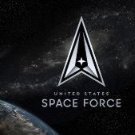Members Can Post Anonymously On This Site
ESA–EGU announce Excellence Award winners
-
Similar Topics
-
By NASA
Shahab ChaudhryCredit: NASA Shahab Chaudhry, chief of the Power and Propulsion Element (PPE) Project Office at NASA’s Glenn Research Center in Cleveland, has received a 2025 NASA Program and Project Management Excellence Award. He is one of just three recipients agencywide.
The award recognizes individuals and teams who exemplify excellence in program and project management and the role it plays in helping NASA achieve its strategic goals.
Chaudhry was honored for his leadership as the Power and Propulsion Element Project chief, working with industry partners to develop innovative solutions to address complex programmatic and technical challenges. The powerhouse for the Gateway space station, the Power and Propulsion Element will provide the lunar outpost with vital communication capabilities, power to keep its computer systems running, and propulsion to stay in its orbit around the Moon.
Return to Newsletter Explore More
1 min read NASA Glenn and Cleveland Cavaliers Score With STEM
Article 13 mins ago 3 min read Going Home: NASA Retires S-3B Viking to POW/MIA Museum
Article 1 day ago 4 min read NASA Propellant Tech Could Fuel Long-Duration Missions
Article 3 weeks ago View the full article
-
By NASA
To view this video please enable JavaScript, and consider upgrading to a web browser that supports HTML5 video
NASA has announced the winners of it’s 31st Human Exploration Rover Challenge . The annual engineering competition – one of the agency’s longest standing student challenges – wrapped up on April 11 and April 12, at the U.S. Space & Rocket Center in Huntsville, Alabama, near NASA’s Marshall Space Flight Center. NASA NASA has announced the winning student teams in the 2025 Human Exploration Rover Challenge. This year’s competition challenged teams to design, build, and test a lunar rover powered by either human pilots or remote control. In the human-powered division, Parish Episcopal School in Dallas, Texas, earned first place in the high school division, and the Campbell University in Buies Creek, North Carolina, captured the college and university title. In the remote-control division, Bright Foundation in Surrey, British Columbia, Canada, earned first place in the middle and high school division, and the Instituto Tecnologico de Santa Domingo in the Dominican Republic, captured the college and university title.
The annual engineering competition – one of NASA’s longest standing student challenges – wrapped up on April 11 and April 12, at the U.S. Space & Rocket Center in Huntsville, Alabama, near NASA’s Marshall Space Flight Center. The complete list of 2025 award winners is provided below:
Human-Powered High School Division
First Place: Parish Episcopal School, Dallas, Texas Second Place: Ecambia High School, Pensacola, Florida Third Place: Centro Boliviano Americano – Santa Cruz, Bolivia Human-Powered College/University Division
First Place: Campbell University, Buies Creek, North Carolina Second Place: Instituto Tecnologico de Santo Domingo, Dominican Republic Third Place: University of Alabama in Huntsville Remote-Control Middle School/High School Division
First Place: Bright Foundation, Surrey, British Columbia, Canada Second Place: Assumption College, Brangrak, Bangkok, Thailand Third Place: Erie High School, Erie, Colorado Remote-Control College/University Division
First Place: Instituto Tecnologico de Santo Domingo, Dominican Republic Second Place: Campbell University, Buies Creek, North Carolina Third Place: Tecnologico de Monterey – Campus Cuernvaca, Xochitepec, Morelos, Mexico Ingenuity Award
Queen’s University, Kingston, Ontario, Canada Phoenix Award
Human-Powered High School Division: International Hope School of Bangladesh, Uttara, Dhaka, Bangladesh College/University Division: Auburn University, Auburn, Alabama Remote-Control Middle School/High School Division: Bright Foundation, Surrey, British Columbia, Canada College/University Division: Southwest Oklahoma State University, Weatherford, Oklahoma Task Challenge Award
Remote-Control Middle School/High School Division: Assumption College, Bangrak, Bangkok, Thailand College/University Division: Instituto Tecnologico de Santo Domingo, Dominican Republic Project Review Award
Human-Powered High School Division: Parish Episcopal School, Dallas, Texas College/University Division: Campbell University, Buies Creek, North Carolina Remote-Control Middle School/High School Division: Bright Foundation, Surrey, British Columbia, Canada College/University Division: Instituto Tecnologico de Santo Domingo, Dominican Republic Featherweight Award
Campbell University, Buies Creek, North Carolina Safety Award
Human-Powered High School Division: Parish Episcopal School, Dallas, Texas College/University Division: University of Alabama in Huntsville Crash and Burn Award
Universidad de Monterrey, Nuevo Leon, Mexico (Human-Powered Division) Team Spirit Award
Instituto Tecnologico de Santo Domingo, Dominican Republic (Human-Powered Division) STEM Engagement Award
Human-Powered High School Division: Albertville Innovation School, Albertville, Alabama College/University Division: Instituto Tecnologico de Santo Domingo, Dominican Republic Remote-Control Middle School/High School Division: Instituto Salesiano Don Bosco, Santo Domingo, Dominican Republic College/University Division: Tecnologico de Monterrey, Nuevo Leon, Mexico Social Media Award
Human-Powered High School Division: International Hope School of Bagladesh, Uttara, Dhaka, Bangladesh College/University Division: Universidad Catolica Boliviana “San Pablo” La Paz, Bolivia Remote-Control Middle School/High School Division: ATLAS SkillTech University, Mumbai, Maharashtra, India College/University Division: Instituto Salesiano Don Bosco, Santo Domingo, Dominican Republic Most Improved Performance Award
Human-Powered High School Division: Space Education Institute, Leipzig, Germany College/University Division: Purdue University Northwest, Hammond, Indiana Remote-Control Middle School/High School Division: Erie High School, Erie, Colorado College/University Division: Campbell University, Buies Creek, North Carolina Pit Crew Award
Human-Powered High School Division: Academy of Arts, Career, and Technology, Reno, Nevada College/University Division: Queen’s University, Kingston, Ontario, Canada Artemis Educator Award
Fabion Diaz Palacious from Universidad Catolica Boliviana “San Pablo” La Paz, Bolivia Rookie of the Year
Deira International School, Dubai, United Arab Emirates
More than 500 students with 75 teams from around the world participated in the 31st year of the competition. Participating teams represented 35 colleges and universities, 38 high schools, and two middle schools from 20 states, Puerto Rico, and 16 other nations. Teams were awarded points based on navigating a half-mile obstacle course, conducting mission-specific task challenges, and completing multiple safety and design reviews with NASA engineers.
NASA expanded the 2025 challenge to include a remote-control division, Remote-Operated Vehicular Research, and invited middle school students to participate.
“This student design challenge encourages the next generation of scientists and engineers to engage in the design process by providing innovative concepts and unique perspectives,” said Vemitra Alexander, who leads the challenge for NASA’s Office of STEM Engagement at Marshall. “This challenge also continues NASA’s legacy of providing valuable experiences to students who may be responsible for planning future space missions, including crewed missions to other worlds.”
The rover challenge is one of NASA’s eight Artemis Student Challenges reflecting the goals of the Artemis campaign, which will land Americans on the Moon while establishing a long-term presence for science and exploration, preparing for future human missions to Mars. NASA uses such challenges to encourage students to pursue degrees and careers in the fields of science, technology, engineering, and mathematics.
The competition is managed by NASA’s Southeast Regional Office of STEM Engagement at Marshall. Since its inception in 1994, more than 15,000 students have participated – with many former students now working at NASA, or within the aerospace industry.
To learn more about the Human Exploration Rover Challenge, please visit:
https://www.nasa.gov/roverchallenge/home/index.html
News Media Contact
Taylor Goodwin
Marshall Space Flight Center, Huntsville, Ala.
256.544.0034
taylor.goodwin@nasa.gov
View the full article
-
By Space Force
Another National Security Space Launch mission will deliver a GPS III space vehicle to orbit on a rapid response schedule, demonstrating a continual level of responsiveness by SSC and SpOC.
View the full article
-
By Space Force
This exercise was designed to evaluate and refine tactical movements that have been instilled over the past several months, ensuring security forces Airmen are prepared for a deployed environment.
View the full article
-
By Space Force
Natalia Serna, daughter of Space Launch Delta 30’s senior enlisted leader Chief Master Sgt. Jay Harris and Maria Tapia, wins U.S. Space Force's Military Child of the Year.
View the full article
-
-
Check out these Videos




Recommended Posts
Join the conversation
You can post now and register later. If you have an account, sign in now to post with your account.
Note: Your post will require moderator approval before it will be visible.